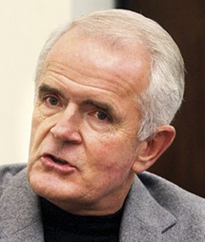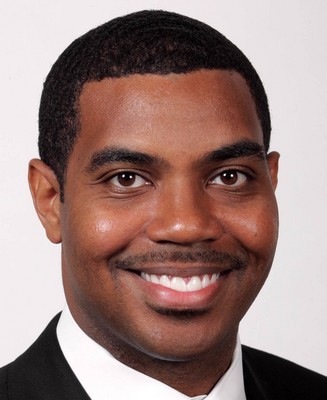Published Sunday, Feb. 28, 2010 | 6:46 p.m.
Updated Monday, March 1, 2010 | 6:45 a.m.
Reader poll
Sun Coverage
CARSON CITY -- The 26th special session of the Nevada Legislature ended shortly after 2 a.m. this morning, as both houses overwhelmingly passed the budget agreement hammered out by Gov. Jim Gibbons and legislative leaders, and extended a 1/8th cent sales tax for road construction jobs.
Both bills are expected to be signed by the governor.
The final hurdle to close the $887 million deficit was a vote in the Senate, but the budget passed 20 to 1. Only Sen. Bob Coffin, D-Las Vegas, voted against the deal because he favored an attempt to increase taxes, instead of the level of cuts.
The budget bill passed the Assembly 34 to 8. All the votes against were by Republicans, who felt like there were too many fee increases.
The solution cut $304 million from operating costs, swept $200 million from other state accounts and raised fees, including the fee to banks for a foreclosure notice and fees for mining claims.
Gibbons is expected to sign the bills, including the so-called "jobs bill."
Senate Majority Leader Steven Horsford warned that the 2011 session would be even worse than the budget deficit faced this time.
"All sectors of the business community that did not step up, you must step up," he said. He quoted from Sen. Randolph Townsend, R-Reno, earlier this week. "This will be the motto for the next session: No is not a plan."
Coffin, who is term-limited out, decried the cuts and the lack of time there was for the public to vet the plan. He said the Legislature should have passed a tax increase, even if it meant challenging the governor's authority.
"The future of Nevada is in jeopardy, for lack of nerve, lack of will, for a failure to address this thing in an appropriate way," Coffin said. "Don't go home and give yourself congratulations for a job well done."
Gibbons late Sunday added onto the proclamation the proposal to raise $430 million for road projects that would create jobs.
The jobs bill, a proposal of the Associated General Contractors, would mostly be funded by lifting a sunset on a 1/8th cent sales tax in Clark County. That money would go to the Southern Nevada Regional Transportation Commission.
Horsford said the bill could create 12,000 direct and indirect jobs over the next month.
Gibbons and legislative leaders earlier in the day announced a budget agreement, signaling a surprisingly congenial end to a special session that will see the state close a budget shortfall projected at $887 million.
The solutions include cutting K-12 and higher education 6.9 percent each, switching most state offices to a four-day work week, sweeping $200 million from various accounts and raising fees on mining and bank foreclosures.
Senate Minority Leader Bill Raggio, R-Reno, said Sunday this was “the most difficult time to develop a budget” since he entered the Legislature in 1972. He said the decisions “will have serious impacts on our citizens.”
For the first time since taking office, Gibbons became intimately involved in the legislative process, meeting for hours at a time with lawmakers as they went through the budget.
Gibbons faces a competitive primary in June, when former federal judge Brian Sandoval and former North Las Vegas Mayor Mike Montandon are expected to challenge him. BothAssembly Minority Leader Heidi Gansert, R-Reno, and Raggio have endorsed Sandoval.
That presented an interesting scene, as Raggio and Gansert stood next to Gibbons and praised him in front of the Legislative Building. Speaker Barbara Buckley, D-Las Vegas, and Senate Horsford also praised the governor for working with the Legislature.
Gibbons said, "The times needed a catalyst -- someone to start the process with the timeline, the deadline rapidly approaching."
Gibbons and all the legislative leaders acknowledged portions of the deal made each of them unhappy.
Gibbons and other Republicans acknowledged that increasing the foreclosure fee when banks file a notice of default from $50 to $200 was a tough pill to swallow. Gibbons acknowledged that a "fee is a tax" and said "I had to" when asked by Sun columnist Jon Ralston about supporting that proposal.
Sen. Randolph Townsend, R-Reno, said, "everyone had to put aside some philosophical differences."
Gansert said, "We were extremely reluctant on that. It came down to the numbers."
The bank fee was pushed by Buckley, who also worked on a foreclosure mediation program last session. Under the agreement, the Nevada Supreme Court could expand the program to commercial foreclosures.
Cheryl Blomstrom, a lobbyist for the Nevada Consumer Finance Association, said, "This is a 400 percent increase to an industry that did not cause this problem."
"The banking industry is an easy target right now," she said. But "when people think of banks, they think of Wall Street banks, investment banks. I think of community banks."
Gansert acknowledged that some of her caucus won't vote for the deal, but said, "We worked to cut as much as we could during the session." Gansert said $300 million has been cut from social services and “people will feel the pain.”
Horsford pointed ahead to 2011, when the state faces a budget shortfall of about $3 billion.
Horsford had lost the battle to institute a $32 million fee on gaming after the powerful industry said it wouldn’t help. That led Horsford, as well as other senators, to hold a floor hearing where they called out businesses for not paying their fair share.
Fees to get a new gaming license will go up. But ultimately, almost all the industries that said they didn't want to pay didn't.
Among other highlights:
• Reducing the governor's proposed 10 percent cuts in funding to K-12 to 6.9 percent, which takes the cut from $211 million to $117 million. Full-time teachers will to keep their jobs in the Clark and Washoe school districts through retirements and attrition, said Lynn Warne, president of the Nevada State Education Association. But class sizes, she said, are likely to increase.
• Legislators worked to add back some of the most high-profile cuts to services for children, the disabled, elderly and mentally ill.
• Nevada State Prison in Carson City will remain open, avoiding more than 100 projected layoffs.
CORRECTION: This story briefly said the governor wanted to raise $480 million for road projects. The story has been corrected to read $430 million. | (March 1, 2010)



Join the Discussion:
Check this out for a full explanation of our conversion to the LiveFyre commenting system and instructions on how to sign up for an account.
Full comments policy